
Lost Horizon is a 1933 novel by English writer James Hilton. The book was turned into a film, also called Lost Horizon, in 1937 by director Frank Capra and a lavish musical remake in 1973 by producer Ross Hunter with music by Burt Bacharach. It is best remembered as the origin of Shangri-La, a fictional utopian lamasery located high in the mountains of Tibet.

Raymond William Stacy Burr was a Canadian actor known for his lengthy Hollywood film career and his title roles in television dramas Perry Mason and Ironside.
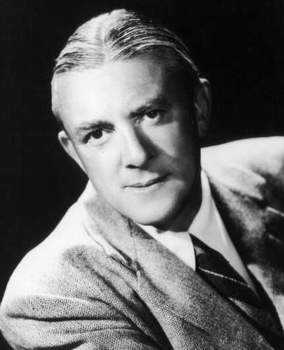
James Hilton was an English novelist and screenwriter. He is best remembered for his novels Lost Horizon, Goodbye, Mr. Chips and Random Harvest, as well as co-writing screenplays for the films Camille (1936) and Mrs. Miniver (1942), the latter earning him an Academy Award.
Albert Eric Maschwitz OBE, sometimes credited as Holt Marvell, was an English entertainer, writer, editor, broadcaster and broadcasting executive.

Repton School is a 13–18 co-educational, private, boarding and day school in the public school tradition, in Repton, Derbyshire, England.
Leslie Bricusse OBE was a British composer, lyricist, and playwright who worked on theatre musicals and wrote theme music for films. He was best known for writing the music and lyrics for the films Doctor Dolittle, Goodbye, Mr. Chips, Scrooge, Willy Wonka & the Chocolate Factory, Tom and Jerry: The Movie, the songs "Goldfinger", "You Only Live Twice", "Can You Read My Mind " from Superman, and "Le Jazz Hot!" with Henry Mancini from Victor/Victoria.

Chipping Norton is a market town and civil parish in the Cotswold Hills in the West Oxfordshire district of Oxfordshire, England, about 12 miles (19 km) south-west of Banbury and 18 miles (29 km) north-west of Oxford. The 2011 Census recorded the civil parish population as 5,719. It was estimated at 6,254 in 2019.
The lex Canuleia, or lex de conubio patrum et plebis, was a law of the Roman Republic, passed in the year 445 BC, restoring the right of conubium (marriage) between patricians and plebeians.

Goodbye, Mr. Chips is a 1939 romantic drama film starring Robert Donat, Greer Garson and directed by Sam Wood. Based on the 1934 novella of the same name by James Hilton, the film is about Mr. Chipping, a beloved aged school teacher and former headmaster of a boarding school, who recalls his career and his personal life over the decades. Produced for the British division of MGM at Denham Studios, the film was dedicated to Irving Thalberg, who died on 14 September 1936. At the 12th Academy Awards, it was nominated for seven awards, including Best Picture, and for his performance as Mr. Chipping, Donat won the award for Best Actor.
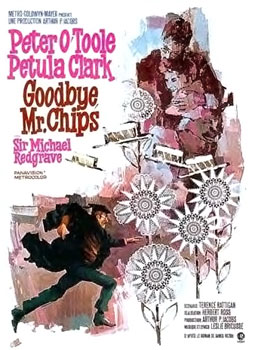
Goodbye, Mr. Chips is a 1969 British musical film directed by Herbert Ross. The screenplay by Terence Rattigan is based on James Hilton's 1934 novella Goodbye, Mr. Chips, which was first adapted for the screen in 1939.
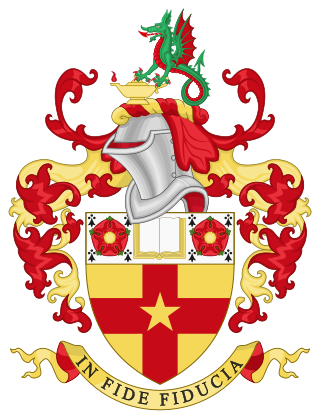
The Leys School is a co-educational private school in Cambridge, England. It is a boarding and day school for about 574 pupils between the ages of eleven and eighteen, and the head is a member of the Headmasters' and Headmistresses' Conference.
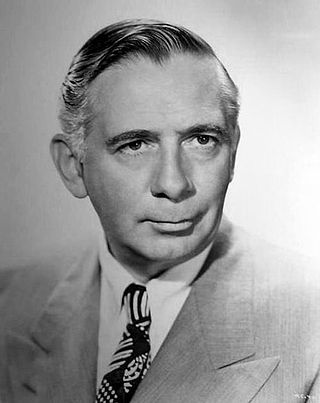
Ray Bidwell Collins was an American character actor in stock and Broadway theatre, radio, films, and television. With 900 stage roles to his credit, he became one of the most successful actors in the developing field of radio drama. A friend and associate of Orson Welles for many years, Collins went to Hollywood with the Mercury Theatre company and made his feature-film debut in Citizen Kane (1941), as Kane's political rival. Collins appeared in more than 75 films and had one of his best-remembered roles on television, as Los Angeles homicide detective Lieutenant Arthur Tragg in the CBS-TV series Perry Mason.
Goodbye, Mr. Chips is a 1934 novella by James Hilton.
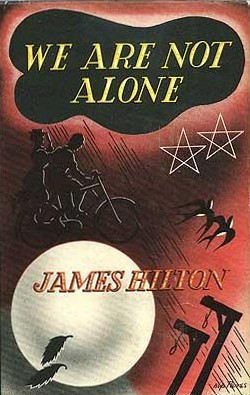
We Are Not Alone is a 1937 novel by James Hilton. It is one of his more sombre works, portraying the tragic consequences of anti-foreign hysteria in England just before World War I. It has been compared to Goodbye, Mr. Chips in its portrayal of small-town life through the eyes of an everyman protagonist.

Francis James Joseph Raphael Delaney was an Irish novelist, journalist and broadcaster. He was the author of The New York Times best-seller Ireland, the non-fiction book Simple Courage: A True Story of Peril on the Sea and many other works of fiction, non-fiction and collections. He was born in Thomastown, Tipperary, Ireland.
James Byng is an English actor and vocalist. Acting since the age of ten, James made his West End debut in the title role of Oliver! at the London Palladium. He played the same role in the national tour of Oliver! and at the Royal Charity Gala Hey! Mr. Producer, honoring theatrical producer Cameron Mackintosh at the Lyceum Theatre on 8 June 1998. Byng also played Gavroche in Les Misérables at the Palace Theatre. From 2007 to 2008 he was seen on stage at the Theatre Royal, Drury Lane, first playing various ensemble roles and then taking over the part of Frodo Baggins in Matthew Warchus' theatrical adaption of The Lord of the Rings. In 2008-09 Byng appeared in the role of John Darling in the musical Peter Pan at the West Yorkshire Playhouse in Leeds. He just finished a tour with the West Yorkshire Playhouse production of The History Boys by Alan Bennet, in which he played Posner. From September until November 2010 Byng was on tour with a production of Carrie's War in the role of Nick Willow. After performing in Secret Cinema - Back to the Future he can currently be seen in The Grimm Tales at The Bargehouse at Oxo Tower Wharf.
Peter Gawthorne was an Anglo-Irish actor, probably best known for his roles in the films of Will Hay and other popular British comedians of the 1930s and 1940s. Gawthorne was one of Britain's most called-upon supporting actors during this period.
William Henry Balgarnie was a schoolmaster at Elmfield College, Woodbridge School and The Leys School, and was the inspiration for the character Mr. Chips in the book Goodbye, Mr. Chips, written by one of his students at The Leys, James Hilton.

Frederick Leister, was an English actor. He began his career in musical comedy and after serving in the First World War he played character roles in modern West End plays and in classic drama. He appeared in more than 60 films between 1922 and 1961.











